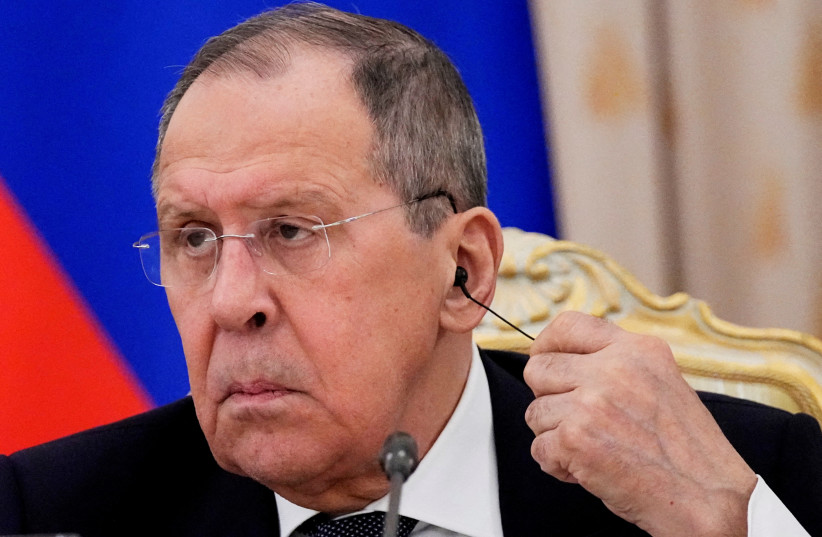Foreign ministers come in one of two types: those who matter and those who don’t.
Some mattered greatly. Austrian foreign minister Klemens von Metternich led the Congress of Vienna’s arrangement of post-Napoleonic Europe, and thus shaped an international order that lasted a century.
Henry Kissinger’s sway reached even further, as he orchestrated the great American-Chinese rapprochement, ended the Vietnam War and sowed the seeds of Arab-Israeli peace.
In Israel, the Oslo Accords were cooked by foreign minister Shimon Peres, and his enlistment of Yitzhak Rabin for that cause was almost as challenging as enlisting its Palestinian side.
Such foreign ministers are the exceptions. Most foreign ministers do a lot of flying and cocktailing but never remap borders, ignite wars or end them. And when such dramas do happen, the foreign ministers are mostly supporting actors in someone else’s show.

Abba Eban, for instance, first tried and failed to lift the shipping blockade Israel faced in May ’67, and then watched from the sidelines the following month’s military cataclysm.
Similarly, the British foreign secretary during the Falkland War, Francis Pym, and the US secretary of state during the Pearl Harbor attack, Cordell Hull, were forgotten because their bosses, Margaret Thatcher and Franklin Roosevelt, dominated both showdowns’ events.
Now, judging by the noise he makes, one would think that Russian Foreign Minister Sergey Lavrov is another Kissinger or Metternich. He isn’t, and will never be.
LAVROV’S FIRST problem is that he serves an autocrat. Such foreign ministers never shaped events.
Hitler’s top diplomat, Joachim von Ribbentrop, is famous even 77 years after his hanging, but only because his name dons the Soviet-German pact that sparked World War II. Strategically he was meaningless, because Hitler consulted no one.
On the contrary, Ribbentrop was appointed precisely because he was a yes-man who blindly followed, trumpeted and ingratiated the boss. Such was also the irrelevance of the foreign ministers alongside Joseph Stalin, Francisco Franco and Augusto Pinochet, not to mention North Korea’s.
There was one exception to this rule: fascist Italy’s Galeazzo Ciano. Benito Mussolini’s foreign minister did matter, not only because he was the dictator’s son-in-law, but because he was independent minded, smart and widely seen as Il Duce’s heir apparent. It also explains his unhappy end, and, inter alia, the current conduct of Sergey Lavrov.
With Sicily invaded and defeat looming, Ciano backed an attempt in summer ’43 to peacefully remove Mussolini, who in turn resisted and was thus forcefully removed. Fearing for his life, Ciano fled with his family to Germany, which in the meantime rescued Mussolini and restored his rule.
Knowing full well Ciano realized the war’s futility and sought peace, Germany extradited him to Mussolini and pressured him to indict his son-in-law for treason. The request was duly heeded, a show trial was ordered, and Ciano was executed by a firing squad.
Preventing such a peacemaker’s image and fate is right now Lavrov’s main concern.
UNLIKE CIANO, Lavrov does not spend his days wondering “where is all this going?” and “how do we put an end to this madness?” People who think in such critical ways don’t last 18 years as an autocrat’s foreign minister. Like Ribbentrop, Lavrov wastes no energy wondering how to debate the boss, and focuses instead on thinking how to please him.
The quest to please means telling the boss that his aims are great, his plans are perfect, and what challenges they might involve are surmountable. Then, when the perfect plans produce fiasco, the obsequious yes-man’s unimaginative mind must offer solutions. That’s the hole from which Sergey Lavrov now spoke.
Much has been said about Russia’s many military failures in Ukraine – the strategy, the tactics, the logistics, the training, the motivation, the equipment, its maintenance and the intelligence failure concerning the enemy’s means and resolve. Yet Russia’s failure is not only military. It’s also diplomatic.
The failure to warn of the world’s response – the diplomatic onslaught, the economic siege, the journalistic wrath and NATO’s emerging expansion to Sweden and Finland – is fully Sergey Lavrov’s. And since he knows this all too well, he is trying to do what those who have no answer always do – change the subject. And in Russia there is a time-honored formula for changing the subject: talk about the Jews.
That is what the tsars did when they failed to give their people the opportunities and dignity that the era’s competing empires offered in abundance. That was the context in which one of antisemitism’s most notorious tools, the pogrom, was engineered by tsarist officials, and that’s how its literary companion, The Protocols of the Elders of Zion, was concocted by tsarist spooks.
The tsarist number was then repeated by the Soviet Union, in 1967.
Pressed to explain its Middle Eastern clients’ defeat and their Soviet-made equipment’s trouncing, the Kremlin launched a massive antisemitic assault through its vast network of print and broadcast media, all of which now depicted Israel as a colonialist bloodsucker, imperialist stooge and fascist scourge.
Today’s Kremlin is, fortunately, distant from that legacy. However, Lavrov’s quip to Italian TV that “the most ardent antisemites are usually Jews” and that Hitler was partly Jewish is a throwback to the mindset that drove it.
Judging by recent days’ commotion, Lavrov might think he actually changed the subject. Well that’s also what the tsars thought in their days, and the Communists in theirs, only to soon see that reality remained stubbornly unchanged, and grim.
In fact, the more the regime abused the Jews the more it lost control of events. That is why we know that just like the pogroms didn’t prevent tsarism’s downfall, and just like defaming Israel didn’t prevent Communism’s collapse, Lavrov’s antisemitic broadsides will not offset his Ukrainian defeat.
The writer’s bestselling Mitzad Ha’ivelet Ha’yehudi (The Jewish March of Folly, Yediot Sefarim, 2019), is a revisionist history of the Jewish people’s leadership from antiquity to modernity.
